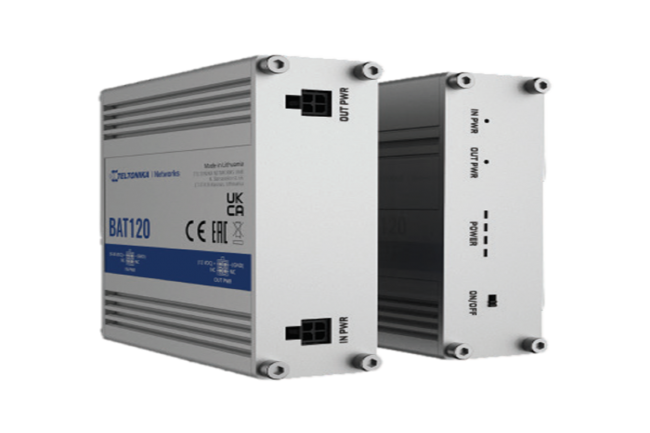The process of starting a business is a thrilling yet daunting journey especially for new entrepreneurs. One of the crucial elements to consider is to understand company formations. This involves choosing the right structure for your business including an sole proprietorship, a partnership or a limited company. Each has advantages […]
Other News
Large Ear Stretching Kit – Things To Be Aware Of
A longstanding practice, ear stretching has a long and rich history that covers centuries and different cultures. This practice, which involves gradually enlarging the size of the earlobe, has been tied to different traditions. From the tribes of the Indians to the fashion world of today, these earring stretchers are […]
Motivational Keynote Speakers And Their Myths
The most memorable motivational speakers possess certain characteristics that make them stand out from other speakers. They’re not just people that stand on stage and give a speech They have an unique ability to connect with their audience on emotions. This connection is often the key to a lasting impact, […]
Closer Look On Local Flower Delivery
When organizing a wedding, choosing local flowers can greatly improve the beauty and uniqueness of your wedding day. To begin, it’s essential to research and identify reputable local flower shops and florists. These professionals are well-versed in providing fresh and seasonal blooms which will perfectly match your wedding theme. Utilizing […]
ECN and STP Brokers: Which One is Right for Your Trading Style?
Introduction
Trading models are important for traders looking to maximise profits and minimise risks. ECN (Electronic Communication Network) as well as STP, (Straight Through Processing) are two well-known trading models. They offer different advantages and drawbacks according to the individual’s preferences and objectives. In this post, we will provide an overview of ECN and STP trading models, and compare their main differences, and discuss the advantages and disadvantages of each model. We will also give guidelines for selecting the appropriate model and offer tips for effective trading with ECN and STP brokers.

ECN and STP trading models enable traders to trade directly with liquidity suppliers and access the interbank markets. They both have advantages over the market maker model, including less spreads and a faster execution. They also provide better transparency. There are a few notable variations between both models, which traders should consider before making a decision on which one to choose.
Understanding ECN and STP
- Definition of ECN
ECN is a method of trading that connects traders to liquidity providers, such as hedge funds and banks. The ECN model acts as a hub, matching the purchase and sell orders of various market participants. This helps ensure that traders receive the highest price they can get for their trades. ECN brokers charge commissions on every trade. This is typically an amount of. - Definition of STP
STP is a trading method that lets traders execute transactions directly with liquidity providers, without the need for a dealing desk. STP brokers act as intermediaries and serve as a bridge between the liquidity providers and traders. They process orders efficiently and eliminate broker involvement. STP brokers are able to offer fixed or variable spreads based on the liquidity providers they work with.
Key Differences between ECN and STP
The primary distinction in ECN and STP is the way they operate. ECN brokers operate as a hub which matches buy and sell requests from different market participants, while STP brokers deal directly with liquidity providers. ECN brokers will charge a fee per trade. STP brokers can charge an additional markup or commission on the spread. ECN brokers have lower spreads and speedier execution. They also provide better transparency. STP brokers provide seamless order processing, less trading costs, and better transparency.
Pros and Cons of ECN Trading
ECN trading has many advantages in comparison to traditional market maker models, for example less spreads, more efficient execution, more liquidity, and price transparency. But there are some drawbacks that traders need to be aware of before choosing the ECN broker.
Advantages of ECN Trading
- ECN brokers offer lower spreads and traders will save money on each trade. ECN brokers require a fee per trade, which typically is part of the trade’s value, however this could still be less expensive than paying a markup on spreads.
- ECN brokers allow faster execution of trades, and more liquidity. This lets traders enter and out of trades at a competitive price.
- Price transparency is improved ECN brokers offer greater transparency in terms of price compared to traditional market makers. The traders can compare prices offered by various liquidity providers, and then choose the best price that is available for their trades.
- Direct contact with liquidity providers ECN trading offers traders the possibility to connect directly with various liquidity providers including institutions, banks, and other traders. This direct access could lead to better pricing and maybe better trade execution.
- ECN brokers do not trade with their clients. Therefore, there aren’t any conflicts of interest. It eliminates any worries about your broker manipulating prices to benefit themselves in order to create a fair and transparent trading environment.
- Variable Spreads – Unlike fixed spreads ECN brokers provide variable spreads that match market conditions. Spreads can increase in times when there is a lot of volatility in the market, and may be tight during quieter periods.
- Depth of Market Information ECN trading can provide traders with information regarding the depth of the market with the availability of orders and their size at various price levels. This information assists traders in making better decisions.
- ECN trading is completely anonymous since traders aren’t traced to the providers of liquidity. This can be advantageous for traders who wish to protect their strategies for trading from being abused by market players.
- Access to Interbank Rates: ECN brokers offer access to interbank rates, which are rates at which banks and big institutions trade currencies with each and each. This may result in more efficient pricing and execution, particularly for larger trades.
- High-frequency trading and scalping: ECN trading is well-suited for traders who scalp and high-frequency traders that require speedy execution and low latency. Direct market access, as well as rapid execution speeds, make it an ideal option for these trading strategies.
- Large Lot Sizes Flexible: ECN brokers often allow traders to trade in smaller sizes of lots as compared to traditional brokers. This is particularly useful to traders with limited capital or wish to manage risk better.
- Ability to place Stop Orders and Limits in the Spread ECN brokers usually permit traders to place limit and stop orders inside the spread. This can be beneficial to traders who wish to enter the market at certain price points without being affected by fluctuations in spreads.
- No Requotes: Due the nature of ECN trading There are usually no Requotes. The orders are executed in accordance with the price displayed without the broker refusing to accept the order or altering it due price changes.
Disadvantages of ECN Trading
- Costs for trading are higher due to commissions ECN brokers are charged a commission for each trade, which adds to significant costs over time. It is important to consider these costs when selecting the ECN broker.
- The need for advanced trading skills and strategies ECN trading requires advanced trading skills and strategies, as traders must be able to analyse the market and make trades quickly and effectively.
- Possibility of Slippage ECN trading strives to provide rapid and efficient execution of orders However, there’s a possibility of slippage during periods of high market volatility. The price for execution may be different from the one that you initially planned to trade.
- Exotic Pairs aren’t available The following ECN Brokers might only provide the most limited number of currencies. They usually concentrate exclusively on the most important and the minor currencies. People who are interested in trading exotic currency pairs may have less options than traditional brokers.
- Minimum Deposit Requirements ECN brokers might have higher deposit minimums over other brokers. This could be a hurdle for traders with a limited amount of funds.
- ECN brokers often have fees that include spreads and commissions. Some traders might find it difficult to determine the effect of these charges on trading costs, and know how to deal with them.
- The learning curve that is initially incorporated into ECN trading is steeper than the other models for trading. It is due in part to its complex nature. It may take a lot of time and effort to master how to utilise the ECN environment.
- A greater emphasis on the importance of technical analysis More emphasis on Technical Analysis: Successful ECN trading usually relies heavily on chart patterns and technical analysis. ECN trading is more technical and traders who are more inclined to more fundamental analysis might struggle to make the transition.
- Need to have a Robust Internet Connection: ECN trading requires a steady and reliable internet connection. Traders must make sure they have the right infrastructure in place to keep a steady connection during trading hours in order to ensure that there are no disruptions.
- Market Depth Could Not be Always Available: Even though ECN brokers can provide more detailed market depth data However, there could be occasions in which market depth information may not be readily available because of sudden market movements or periods of low liquidity.
- The cost of financing for overnight transactions could be incurred if you are a part of the ECN Model over the course of a day. It is based upon the differentials in interest rates between currencies.
- The inexperienced trader may be overwhelmed by the frantic nature and the wealth of information readily available in real time. The novices will need time to adjust to the rapid decisions required.
Pros and Cons of STP Trading
STP trading provides a combination of features that come from ECN as well as market maker models, for example seamless order processing and lower cost of trading. But, there are some drawbacks that traders need to be aware of prior to selecting the STP broker.

Advantages of STP Trading
- Blending features of ECN and market maker models: STP brokers combine the attributes of ECN brokers as well as market makers, offering an easy order process and lower costs for trading.
- Lower trading costs compared to traditional market makers: STP brokers have lower fees for trading than traditional makers since they process orders directly with liquidity providers and do not charge a markup of the spread.
- Transparent Pricing: STP brokers often provide transparent pricing through aggregating quotes from several liquidity providers. This allows traders the ability to monitor real-time demand and bid prices.
- The risk of manipulation of Prices: Since STP brokers are not agents for your trades, it is less risk of manipulation of prices. This will increase the trust and confidence of trading procedures.
- There is no Dealing Desk Execution (NDD). STP brokers provide this kind of execution. Orders are processed with no involvement of brokers. This could lead to faster execution and less rejections.
- Access to institutional liquidity: STP brokers have access to institutional-level liquidity. This allows traders to benefit from lower spreads and higher execution quality.
- Diverse Asset Selection: A lot of STP brokers offer a wide array of trading instruments such as commodities, forex, indices, and more. This enables traders to diversify their portfolios and explore diverse market opportunities
- Ideal for various trading styles: STP trading accommodates various trading styles, from day trading to swing trading and even long-term strategies. Traders can execute their preferred strategies with the advantages of execution using STP.
- STP Brokers are Scalping-Friendly: Due to their order routing directly and the fast execution process they use, STP brokers often accommodate scalpers. Traders engaging in rapid trades can benefit from quick order processing
- STP Trading seeks to minimise conflict of interest, like ECN trading models. The success of the broker is correlated with that of the traders.
- STP Brokers Support Flexible Trade Sizes. STP brokers allow traders to carry out trades with different sizes, like micro-lots, or standard lots according to their risk-management strategy.
- Market-neutral Execution STP trading offers market-neutral execution in that trades are routed directly to the market, and without the broker’s involvement. This allows traders to steer clear of biases due to broker intervention.
Disadvantages of STP Trading
- Potential conflicts of interest between traders and brokers: STP brokers could have conflicts of interest traders since they could receive incentives from liquidity providers to route trades in certain ways.
- STP brokers have less transparency in comparison to ECN brokers. This is due to the fact that traders cannot view the bid and ask rates of various liquidity providers.
- The possibility of requotes. While STP seeks to provide smooth execution, there is the possibility of Requotes. This is especially so during times of high fluctuations in the market. Requotes are created in the event that the requested price doesn’t exist anymore, causing delays in the processing of orders.
- STP brokers can have spreads that vary and may rise during market volatility. The spreads that traders are offered may be limited, and this could have an impact on the costs of trading.
- Inconsistent or inconsistent Order Execution Speeds STP execution speeds can vary depending on the market conditions and the technology infrastructure of the broker. The traders could experience delays during peak trading hours, which could affect trade entry and exit.
- Risk of Slippage: Similar to ECN trading, slippage can occur in STP execution as well. Slippage may occur if the execution price is different from the price that was intended because of the rapid movement in market prices.
- Some STP brokers require greater sums of deposit to create an account. This may be a barrier to traders with limited capital and who would like to begin trading with less money.
- STP brokers may not offer the same amount of information in the same way as ECN brokers, which provides a better understanding of the market across a variety of price levels.
- Order rejections are possible. STP brokers may reject orders in a few instances, in particular if the conditions in the market or connectivity issues do not favourably. This could result in missed trading opportunities.
- Risk of Overloading During High Volatility: During periods of extreme market volatility, STP brokers might experience technical problems or delays due to increased trading activity, possibly affecting the execution of trades.
- Limitation of advanced features: STP brokers may have fewer trading tools and advanced features than ECN brokers. Traders who rely on specific tools for their strategies might be unable to use this feature.
- Varied Quality of Execution: The quality of execution can differ between different STP brokers. Traders may need to thoroughly look up and select a reputable STP broker in order to guarantee consistent and efficient execution.
Choosing Between ECN and STP
The decision between ECN or STP is based on a variety of aspects like trading volume, trading style, and trading objectives. In deciding between ECN or STP, traders should consider the following elements:
Factors to Consider
- The type of trading, the volume, and frequency traders who trade regularly and with high volumes may discover ECN trading advantageous since it is faster in execution and greater liquidity. STP trading is a great alternative for traders who have lower frequency and volumes. It offers lower costs.
- What are your goals in trading? Long-term or short-term? Traders who have long-term objectives can benefit from ECN, which offers better liquidity and better transparency. The traders who have short-term trade goals could benefit from STP trading, as it has faster execution as well as lower trading costs.
- The risk tolerance of traders and their preferred Spreads: Traders with a high tolerance for risk and prefer a more streamlined spread could benefit from ECN offering lower spreads. Traders with lower risk tolerance and a preference for greater spreads may benefit from STP trading since it comes with lower costs for trading.
- Market Volatility: Assess your confidence level when dealing with volatility. ECN trading might be an excellent fit if you enjoy fast-moving markets and can make quick decisions when under stress. If you’re looking for a more reliable and stable trading environment, STP brokers may be the right choice.
- Time Commitment: Determine how much time you can dedicate to trading. Direct market access, quicker execution and ECN trading could be advantageous for traders who are active and keep track of markets and perform a variety of trades. However, STP trading’s cost-efficiency might suit individuals with limited time to trade by engaging in fewer and potentially more efficient trades.
- Trading Platforms and Tools Examine the tools and platforms offered by ECN brokers and STP brokers. Choose the platform for trading that best fits your trading style and has the tools required for analysis of technical aspects, order processing, and risk management.
- Sizes of Trades: Think about the average trade size you plan to complete. ECN brokers are commonly suited for traders who deal with larger volumes, as their deep liquidity can accommodate large orders with no negative market effects. STP brokers, on the other hand, may cater to traders who prefer smaller trade sizes and seek the most cost-effective execution for every trade.
- Market Access: Select which markets and assets are available to you. ECN brokers commonly offer access to a diverse array of financial instruments, such as commodities, forex and indexes and, sometimes, cryptocurrencies. If you’re interested in trading various markets and currencies, an ECN broker could offer the wide range of instruments you’re seeking.
- Regulatory Compliance: Prioritise regulatory compliance when evaluating both ECN and STP brokers. Verify that the brokers’ regulation is by well-respected authorities within the trading world. Regulative oversight offers traders an extra layer of protection and guarantees that they are using fair trading practices while protecting their investments.
- Customer Support: High-quality customer support is vital for solving any issues or questions that arise during your trading journey. Assess the responsiveness, availability and quality of customer support from both ECN and STP brokers. A broker with strong customer service can provide valuable assistance when required.
- Types of orders Different trading strategies require different order types. Consider the kinds of orders offered by ECN and STP brokerages. If your strategy depends on certain types of orders, such as limit orders, stop orders, or trailing stops, make sure that the broker can accommodate those types of orders.
- Educational Resources: Education is vital, particularly when traders are new to the markets. Review the educational materials offered by different types of brokers. These include webinars, analysis of markets, education material and tutorials.
- Broker Reputation: Discover the credibility of ECN and STP brokers in the trading community. To assess a broker’s credibility, integrity, transparency, and trustworthiness, go through testimonials, reviews, and comments from other traders. A broker who has a good reputation will likely offer you a positive trading experience.
- Withdrawal and Deposit Methods: Consider the convenience and security of deposit and withdrawal methods provided by brokers. Make sure that your chosen broker offers payment methods that work with your preferences, and they are able to make efficient transfers of funds.
- Demo Accounts: Both ECN and STP brokerages provide demo accounts that allow you to try out their trading platforms. Demo accounts allow you to test trading conditions in real-time without risking actual funds. This can allow you to test the usability of the platform and the speed at which orders are executed.
Determining the Right Model for You
The factors listed above, together with traders’ objectives in trading and preferences, will help them determine which model is best for them. Traders should also research different ECN and STP brokers and then compare their costs and features prior to making a decision.
Hybrid Model: A Combination of ECN and STP
At its heart, the hybrid model represents the most sophisticated combination of ECN and STP trading paradigms. The ECN and STP trading models are well-established in the market; however, the hybrid model combines the best aspects of both to create a platform which can meet a broad range of preferences and requirements for traders. Hybrid brokers provide traders with various account types, including ECN and STP, which allows them to tailor their trading strategy based on their needs.
Definition and Advantages
The hybrid model is based on direct market access, order matching and the effectiveness of the ECN model. This allows traders to engage directly with liquidity providers in an open and efficient trading system. In addition, it makes use of the seamless order processing process and lower trading costs inherent in the STP model, providing traders with competitive spreads and a smoother execution process.
The hybrid model can provide lower trading costs compared to traditional market makers. Because it efficiently routes trades to liquidity providers and eliminates the spread markup, traders will profit from lower trading costs. The hybrid model can be more efficient, which can meet the needs of traders who want to complete orders on time.
The hybrid model can provide the ability to save money, faster execution and increased transparency. It also improves liquidity. The traders can understand the depth of the markets, allowing them to make informed decisions. This transparency cultivates a more well-informed trading environment, which increases trader confidence and informed decision-making.
Disadvantages of the Hybrid Model
The hybrid model may have many advantages, but it is important to understand that it could have some limitations. Potential conflicts of interest between traders and brokers could still arise within this model similar to what happens in any other trading framework. As hybrid brokers route transactions to liquidity providers traders should be cautious in choosing reputable brokers that adhere to ethical practices to mitigate such conflicts.
While the hybrid model can be described as very transparent, it’s not quite as effective as the ECN model in terms of revealing the bid and ask price for multiple liquidity providers. The ECN model may be more appealing to traders looking for complete transparency.
Choosing the Right Hybrid Broker
As traders look into the hybrid model, due diligence is imperative. It is crucial to investigate different hybrid brokers and understand their charges, types of accounts and other services. The comparison of options and aligning them with trading goals and preferences can assist traders to identify a hybrid brokerage that compliments their journey in trading.

The hybrid model is an excellent illustration of the ever-changing innovations in the world of trading. The hybrid model seeks to improve the experience of trading to a wide variety of traders, by combining the advantages of ECN models with STP. With its blend of direct access to markets, seamless order processing, lower cost and enhanced liquidity, the hybrid model stands as an example of the constantly evolving nature of financial markets and the constant commitment to providing traders with the best trading solutions.
ECN vs STP vs Market Maker
In the process of choosing the best trading method the traders will often encounter three primary options: ECN (Electronic Communication Network), STP (Straight-Through Processing), and Market Maker. Each has its own advantages and drawbacks, and knowing the distinctions between them is vital to making a well-informed choice. Let’s take a review of each model and evaluate their primary characteristics.
ECN (Electronic Communication Network)
ECN is a trading model that connects traders directly to liquidity providers such as banks and financial institutions. The ECN model operates as a hub, which matches purchases and sales from different market participants, ensuring that traders receive the most competitive rate for their transactions.
Here are some key points about ECN:
- Spreads are lower: ECN brokers have spreads that are usually lower than market makers because they mix prices from a variety of liquidity providers.
- Speedier execution: ECN Brokers offer faster execution allowing traders to benefit from market opportunities instantly.
- ECN brokers increase liquidity as they connect traders to an extensive network of liquidity providers.
- Price transparency: ECN brokers provide greater price transparency since traders are able to see the price of their bid and the prices they ask from different liquidity suppliers.
STP (Straight-Through Processing)
STP is a type of trading that permits traders to place transactions directly with liquidity providers without the need for a trading desk. STP brokers act as intermediaries that operate between traders as well as liquidity providers. They manage orders efficiently and minimise broker intervention.
Here are some key points about STP:
- STP brokers conduct trades electronically and in an automated way, without any human intervention.
- Lower cost of trading: STP brokers typically have cheaper trading fees than market makers, as they are able to pass on prices from liquidity providers and do not add any markup.
- Blending features: STP brokers combine the characteristics of ECN brokers and market makers, providing an opportunity to balance lower trading costs and improved execution.
Market Maker
Market makers are brokers that offer liquidity to the market by quoting buy and sell prices for financial instruments. They establish a marketplace where traders can buy and sell their products, and profit by the spread between bid and ask prices. Here are some of the most important points about market makers:
- Instant execution: Market makers provide immediate execution of trades as they are the counterparties to trades by the trader.
- Potential conflicts of interest: Market makers may have conflicts of interest with traders, as they benefit from trader’s losses.
- Wider spreads: Market makers often offer wider spreads compared to ECN and STP brokers since they add a markup to the prices they provide.
Comparison of Trading Models
Here is a comparison of the key features and advantages/disadvantages of each trading model:
| Trading Model | Key Features | Advantages | Disadvantages |
| ECN | – Lower spreads
– Faster execution – More liquidity – Price Transparency |
– Lower costs for trading– Access to multiple liquidity providers
– Price transparency is improved |
– Increased costs for trading because of commissions
– Need to be able to trade |
| STP | – Processing orders is easy and smoot
– Lower costs for trading – Blending the features of ECN and market makers |
– Lower trading costs
– Better execution – No conflicts of interest |
– Price transparency is less transparent than ECN |
| Market Maker | – Instant execution
– Conflicts of Interest – Wider spreads |
– Instant execution
– Market availability – No commission charges |
– Conflicts of Interest
– Wider spreads – Less price transparency |
Tips for Effective Trading with ECN and STP Brokers
There are some top trading practices that traders should adhere to regardless of the trade model:
- Selecting a reputable broker: Do your homework thoroughly and select a broker with a solid reputation, good regulation, as well as positive reviews from traders.
- Implementing appropriate strategies to manage risk: Utilise risk management tools such as Stop-loss order and take-profit orders to manage risk and secure capital.
- Utilising Limit Orders with Care Utilising Limit Orders Wisely: Make use of limit orders, especially with ECN brokers, in order to determine the exact price you wish to make an entry or exit trade. This can be extremely useful during periods of volatility when rapid price movements are anticipated.
- Diversifying your liquidity providers: ECN trading allows you to search for brokers offering a wide range of liquidity providers. Diversifying your liquidity providers can boost execution efficiency and decrease the risk of bottlenecks in high-activity markets.
- Examine the Execution speed Check the speed of execution with other brokers. It is important to test execution speeds in various market conditions, since both ECN and STP models emphasise fast order processing.
- Making adjustments to news releases: In both ECN and STP trading, news announcements can trigger market volatility. Prepare yourself for such situations by adjusting your risk exposure in the event of a rise in stop-loss levels, or avoiding trading during critical news announcements.
- Keeping Trade Records: Maintain a complete trading journal that records your strategies, trades and outcomes. Analysing past trades will give you valuable information about your strengths and weaknesses.
Conclusion
Trading goals can only be attained by selecting the appropriate trading strategy. ECN, STP, and Market Maker models each have their own advantages and disadvantages and traders must consider their trading style, objectives, and preferences when making a choice. By understanding the key characteristics and distinctions between the three models, traders are able to make an informed choice and make the most of their trading experience. Make sure you choose a reputable broker, implement proper methods for managing risk and keep up-to-date with the market to ensure that trading is successful.

FAQs
Q1: What makes choosing the right trading model so important?
The choice of the best trading method greatly affects your trading experience. It influences factors like timing of execution, costs and transparency, all of which affect your performance in the market.
Answer: Choosing the appropriate trading method will determine your orders’ efficiency, costs, and level of control over the trades you make. No matter if you’re a scalper day trader, or a long-term investor, a good model will help you improve your strategies and results.
Q 2: How does ECN operate, and what’s its key feature? What sets ECN apart from other trading models, and traders can benefit from it?
Answer: ECN, also known as the Electronic Communication Network, operates as a network that directly connects traders with liquidity providers, providing immediate ordering and execution. Its primary feature is market access directly, which enables traders to communicate with a variety of sources of liquidity. It also promotes greater transparency as well as tighter spreads.
Q 3: Can you explain the main differences between ECN and STP?
Answer: While both ECN (STP) and ECN emphasise efficiency and transparency, their operations are different. ECN insists on direct market access in order matching and trade routing within a network. STP emphasises seamless processing of trades by routing orders via liquidity providers. The choice you choose is based on your trading goals and style.
Q 4: What advantages does the Hybrid Model offer?
Answer: The Hybrid Model combines features of ECN and STP, providing traders with a balance between rapid execution as well as transparency and cost-effectiveness. This model allows for competitive spreads while minimising potential conflicts of interest that could be present in other models.
Q 5: How do I decide between ECN and STP trading models?
I’m not sure about ECN and STP. What factors should I consider to determine which is the best option for my style of trading?
Answer: Consider your trading objectives, such as trading frequency volumes, risk tolerance, and preferred spreads. ECNs are a good option for active traders that require fast execution. On the other hand, in the case of a moderate trader looking to get competitive costs, STP could be more suitable.
Q 6: What’s the significance of choosing a reputable broker for ECN and STP trading?
Answer: Reputable brokers ensure that the trades you make are done fairly and with complete transparency. They offer access to reliable liquidity sources, can help you stay clear of conflicts of interest, and provide proper risk-management tools. Selecting a reliable broker is essential for protecting your investment and achieving positive trading results.
References
https://fxstadium.com/review/fxview/
https://www.bsp.gov.ph/sitepages/statistics/exchangerate.aspx
https://myfxlist.com/what-is-ecn-trading-and-what-are-its-advantages/
https://55brokers.com/ecn-forex-brokers/
https://tradymindedu.in/courses/starter-forex-trading-course-3-month-program/
https://digicoincenter.com/review/fxview/
https://www.investopedia.com/articles/trading/05/011705.asp
https://www.daytrading.com/stp-brokers
https://www.dailyforex.com/forex-brokers/best-forex-brokers/ecn
https://fxstadium.com/best-ecn-forex-brokers/
https://www.thinkmarkets.com/en/partnerships/white-label/
https://www.sec.gov/investor/alerts/forextrading.pdf
https://finance.yahoo.com/news/first-steps-become-professional-day-150410037.html
https://forexf1.com/ecn-brokers-meaning-and-advantages/
https://myfxlist.com/the-difference-between-an-stp-and-an-ecn-forex-broker-explained/
https://b2broker.com/news/differences-between-stp-ecn-dma/
https://www.modestmoney.com/market-makers-vs-ecn-brokers/
https://coesfx.com/stp-ecn-brokers/
https://finance.yahoo.com/news/pros-cons-ecn-forex-broker-090000414.html
https://www.wikifx.com/en/newsdetail/202206214364601576.html
https://home.treasury.gov/policy-issues/international/
https://www.xcritical.com/white-label-forex-solutions/
https://www.globalbrandsmagazine.com/what-are-the-benefits-of-trading-with-a-true-ecn-forex-broker/
https://www.fxempire.com/education/article/what-is-ecn-trading-and-what-are-its-advantages-555137
https://www.wikifx.com/en/newsdetail/202206014124155695.html
https://www.globalbrandsmagazine.com/best-ecn-brokers-in-the-world/





























